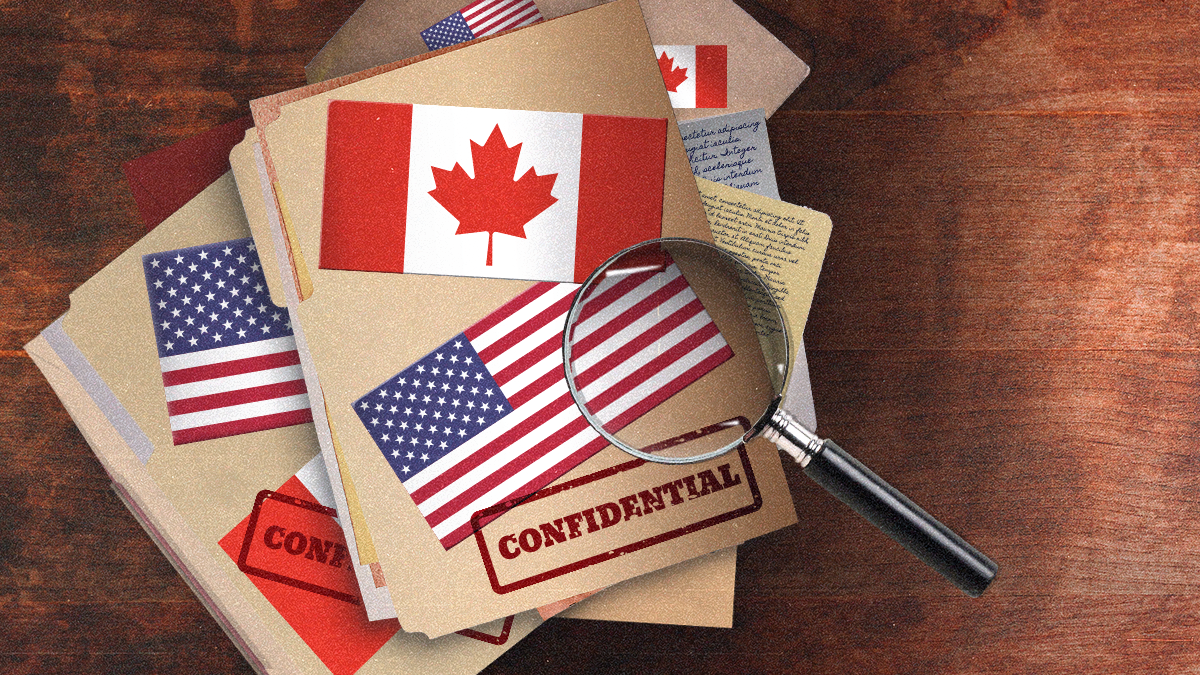April 13, 2023
For months, leaked US intelligence documents have been circulating online. The press recently picked up on them, drawing further attention to secrets that the US and its allies would have rather kept private. US Defense Secretary Lloyd Austin says some of the materials may be fabricated, but he didn’t specify which. Authorities, meanwhile, have arrested a suspect.
A pool full of leaks
The leaks contain top-secret American military plans for operations in Ukraine alongside intelligence collected by the US about its allies, including South Korea, Israel, Egypt, and Canada. They include information – and possibly fabrications – that governments trusted Washington to protect. The South Korean data is particularly thorny; it suggests the Koreans were pressured by the US to ship artillery to Ukraine by way of a phony “end user” to circumvent the country’s export controls on selling munitions to states at war. The documents suggest South Korea eventually shipped or planned to ship the artillery.
Canada also was drawn into the controversy. According to unconfirmed reports, a pro-Russia hacktivist group called Zarya infiltrated Canada’s natural gas infrastructure, gaining the ability “to increase valve pressure, disable alarms, and initiate an emergency shutdown of an unspecified gas distribution station.” The claims may or may not be true, but experts say cyber attacks on the sector aren’t unusual and that they are a national vulnerability.
Losing the game of trust
During the Trump years, plenty of ink was spilled over whether Canada could trust the US with its intelligence. Later, there was concern that Canada was too slow to ban China’s Huawei from its telecom infrastructure, which it did in 2022. A year earlier, Canada was excluded from a “Three Eyes” defense partnership between the US, Australia, and the United Kingdom (AUKUS),raising concern about Canada’s national security and defense commitments at home and abroad. More recently, a series of leaks over alleged election interference in Canada by the Chinese raised alarms about the security of the country’s intelligence apparatus.
With the latest US leaks, the shoe seems to be on the other foot. But Canada isn’t saying that – at least not publicly.
The Canadian Public Safety Ministry said what you’d expect: “We do not comment, whether to confirm or deny, on allegedly leaked intelligence.”
But what else was Canada going to say? Jessica Davis, president of Insight Threat Intelligence and the Canadian Association of Security and Intelligence Studies, says this leak won’t undermine trust in the US intelligence infrastructure any more than leaks of the past. More to the point, Canada and its allies need the US and will continue to do so. “The rest of the Five Eyes doesn’t have a lot of room to maneuver here. We just have to take what the Americans are doing. The Five Eyes are really just consuming a lot of what the Americans give us. We’re very much the junior partners in the relationship.”
Canada is an unlikely US spy target
While the other countries named in the documents, particularly Egypt and South Korea, are irritated with the US spying on their movements, Davis says Canada may not be as perturbed. “It’s not clear that the Americans are actively spying on us,” she says, noting that “the target wasn’t Canada; it was the Russian side of it. So, it’s a different story than some of the other countries, where they are pretty clearly the target of intelligence collection.”
Nonetheless, the fact that US-ally states are being spied on is no surprise. “They have to say something about it, but they also all know that’s the case. Realistically, the US spies on the vast majority of its allies, and we all know this to be true.”
Time to call in some spy-hunter Mounties?
Canada says that it will allow the US to investigate the leaks and is, at least for now, sitting back and allowing the process to unfold. But Davis says there may be more happening behind the scenes. “Canada will probably be following up with the United States to make sure either we have the full picture or they’re sharing anything else they may have access to that could help us prepare our defenses.” But it probably won’t get much spicier than that. Ultimately, she says, “nobody wants to escalate this.”
Embarrassment aside, the Five Eyes alliance will live to spy another day. But continued leaks could ultimately erode trust among alliance members, especially as domestic and international scandals accumulate and take their toll. Whatever is being said publicly about the leaks is just the tip of the iceberg, and America’s allies are now on high alert for what could be lying below the surface.From Your Site Articles
More For You
- YouTube
How is the US is reshaping global power dynamics, using tariffs and unilateral action to challenge the international order it once led? Michael Froman joins Ian Bremmer on GZERO World to discuss.
Most Popular
- YouTube
In this Quick Take from Munich, Ian Bremmer examines the state of the transatlantic alliance as the 62nd Munich Security Conference concludes.
- YouTube
At the 2026 Munich Security Conference, Brad Smith announces the launch of the Trusted Tech Alliance, a coalition of global technology leaders, including Microsoft, committing to secure cross-border tech flows, ethical governance, and stronger data protections.
When the US shift from defending the postwar rules-based order to challenging it, what kind of global system emerges? CFR President Michael Froman joins Ian Bremmer on the GZERO World Podcast to discuss the global order under Trump's second term.
© 2025 GZERO Media. All Rights Reserved | A Eurasia Group media company.
